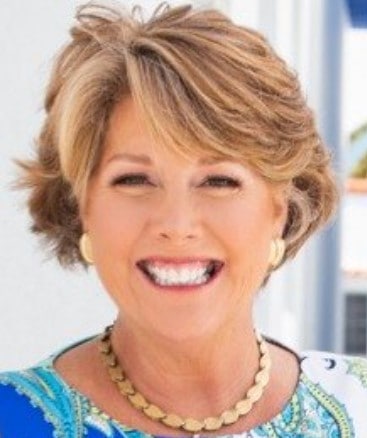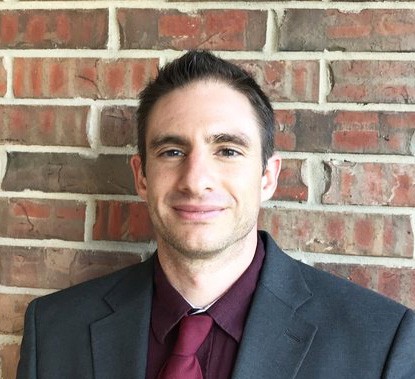To make Wealthtender free for readers, we earn money from advertisers, including financial professionals and firms that pay to be featured. This creates a conflict of interest when we favor their promotion over others. Read our editorial policy and terms of service to learn more. Wealthtender is not a client of these financial services providers.
➡️ Find a Local Advisor | 🎯 Find a Specialist Advisor

After the loss of a spouse, trusted financial advice for widows is easy to find if you know where to look. Meet the financial professionals who can help.
According to statistics reported by the Statista Research Department in June 2022, nearly 12 million widowed women are living in America today. Although it’s not surprising to most that women tend to outlive men, half of the widows over the age of 65 will outlive their partner by 15 years or more.
If you find yourself in this situation, it will undoubtedly be some of the most difficult days, weeks, and months of your life. Losing a partner is incredibly difficult, and having to face decisions alone, many of them financial, can seem completely daunting.
While grieving, you may want to get everything done as quickly as possible, or you may lack the energy to even open the mail. It’s important to not rush into any financial decisions and finding a trusted financial professional in your corner who can help you navigate this new and uncertain time.
Looking for Financial Help for Widows?
You’ll likely find dozens of nearby financial advisors in your community well-suited to help with general financial planning services. But it may be more difficult to find a financial advisor with the knowledge and experience providing financial advice to women following the loss of a spouse.
Fortunately, many financial advisors offer virtual services so you can meet online no matter where you (or they) live. This means you can choose to hire a financial advisor who lives hundreds of miles away if you decide their specialist knowledge and a greater level of empathy and understanding of the needs of widows may prove a better fit.
We asked financial professionals knowledgeable in this area to answer questions useful to recently widowed women and their families grieving the loss of a loved one and in need of financial help and guidance. Here’s what they said:
💡 Six Questions with Elliott Appel, CFP®, CLU®, RLP®, Financial Advisor for Widows

Q: What is a common financial planning challenge unique to widows that you frequently encounter when working with your clients? How do you work with them to overcome this challenge?
A common financial planning challenge I see widows face is feeling overwhelmed and guilty for not actively taking a roll in their finances and feeling paralyzed in making decisions among grief and widow brain.
We work through this by taking it one step at a time. I listen to how they are feeling and what’s on their mind. We work through what is most pressing for them. Then, together, we organize their financial life, so they have a clear idea of what they own and how it’s working for them. From there, we can start making decisions about housing, tax planning, investments, gifting to kids and grandchildren, and charitable giving.
Q: For widows who are unsure whether or not they should hire a financial advisor at the current point in their lives, what guidance can you provide to help them make a more informed and educated decision?
If you are feeling stuck, unsure, or want an accountability partner, a fee-only, fiduciary financial advisor can help. If you feel like you have a good handle on your finances, are monitoring your investments, doing proactive tax planning, have established a gifting strategy (if that’s important to you), and been through checklists about what to do when your loved one dies, then you may not need a financial planner.
You can also watch webinars about how to organize your finances as a widow or other online resources to see if you are already taking care of your financial life.
Lastly, you can also start with an organization like Wings for Widows if you need basic financial coaching without personalized financial advice. I am a pro bono financial coach with them.
Q: How do the services you offer widows distinguish your firm from other advisory firms?
Kindness Financial Planning, LLC was set up specifically to provide proactive financial planning advice and investment management for widows.
Unlike many financial planning firms, my goal is to never have a relationship with more than 50 clients. Many firms aim to have 100 to 300 clients or more per financial advisor.
Since I am a smaller firm and intend to stay small, I can take more time to listen, design content and recommendations tailored to widows, and help educate clients so they can make the best decision for themselves.
You’ll never be told what to do. Every conversation is about education, pros and cons of a decision, and helping you think through what is best for your life. I am a thinking partner for widows.
Q: When you first speak with a widow, what questions do you like to ask to better understand their unique circumstances and determine how you can best help them achieve their goals?
Most of my conversations start with, “Please tell me about yourself and what brings us together today?”
From there, I might ask, “Who are the important people in your life and how might your relationships with them affect our planning.”
The first few conversations are about getting to know what’s important to you and connecting your money to your ideal life. We do that by having the following conversations:
- What’s Important To You? Meeting: we discover what’s important in your life
- Dare to Dream Meeting: we explore what a truly fulfilled and ideal life looks like for you
- What Could Possibly Get in the Way? Meeting: we identify life’s hurdles and strategies to overcome them
Only then can we design financial planning strategies to help you achieve your goals.
Q: What questions do you recommend widows ask financial advisors they’re considering hiring to help them decide if they’re a good fit?
If you decide to research financial planners, you can ask these 10 questions before hiring a financial planner.
Below are a few examples:
- Are you a fiduciary 100% of the time and if so, how would you describe fiduciary duties?
- How does your company get paid and how are you compensated?
- What are the total costs of working with you and what types of services are in your fee?
- Will you describe your typical clients?
- What does a good client relationship look like with you?
These questions are a good starting point to see if a financial planner will always put your interests first, help you become aware of conflicts of interest, the value of working with a financial advisor, and if they know the unique challenges widows face.
Q: For widows or their friends who are interested in offering support, are there groups or online resources you recommend people consider?
Below are a few resources I recommend widows consider:
- A local or online support group for widows, such as Modern Widows Club
- Book: It’s OK That You’re Not OK: Meeting Grief and Loss in a Culture That Doesn’t Understand
- Webinar: How to Organize Your Finances as a Widow
- For friends, learn what to say to a widow and how to be specific in your offers of help to a widow.
Elliott Appel, CFP®, CLU®, RLP® | Kindness Financial Planning
💡 Four Questions with Russ Thornton, Financial Advisor for Widows

Q1: What tax benefits are available to widows?
If you have a dependent child, you might be eligible for “qualifying widow or widower” status which can allow you to continue to file your taxes as married filing jointly up to 2 years after the death of your spouse. This will result in a larger standard deduction among other potential tax benefits.
Q2: Beyond the importance of maintaining your mental health In the first year of widowhood, what financial planning guidance do you commonly provide to widows during this difficult stage of life?
The first thing new widows need to do is breathe and take things one day at a time. Many widows feel they have to tackle financial matters immediately, and while some may need to be addressed sooner than others, it’s rare in my experience that any decisions need to be made immediately.
Once you’re ready, here are some things to consider or work on with your trusted financial advisor and other professionals:
- Probate the will
- Deal with any life insurance
- Apply for any survivor benefits
- Retitle accounts
- Review all loans, bills, & other financial obligations
This list can be different based on your situation. For more on financial tips for your first year as a widow, read this article.
Q3: For recent widows who are unsure if they should hire a financial advisor, what do you suggest they consider to help them feel more confident in deciding whether or not to do so?
Not all recent widows will need a financial advisor, but if you’re considering it be sure to interview at least 3, though I recommend talking to 5 or more if you’re willing and able. Be sure to ask any and all questions you may have and make sure you thoroughly understand any answers you’re given. If you don’t understand, ask for more clarification. Hiring a financial advisor is a big decision, and even more so once you’re on your own. Listen to your gut… your own intuition. If someone doesn’t feel right, walk away. There are plenty of great, trustworthy advisors out there, but there are also a lot of financial salespeople who are often more interested in lining their own pockets. Take your time and be skeptical. If you want to hire an advisor, the right one for you is out there.
Q4: For women who have been recently widowed or their friends interested in learning how they can offer support, are there groups or online resources you recommend for people who have recently lost a spouse?
Feelings of loneliness and isolation can be crippling in the wake of your spouse’s death. It’s often healthy and helpful to seek support from groups and organizations in your area. For example, here are some local Atlanta resources for widows. If you search online or ask around, you can find local support groups in your area as well. Your church or synagogue is also a great place to start if you’re interested in finding support as you deal with this major life transition. Also, many therapists and counselors have experience helping women deal with grief and adjusting to life as a widow. Just know that you don’t have to deal with this all on your own. There are people and groups out there who want to help and support you.
Russ Thornton | Wealthcare for Women
Smart Tips for Finding a Financial Advisor for Widows
Before hiring a financial advisor, here are a few quick tips to help you find the best advisor for you.
1. Decide Which Services You Need
Before hiring an advisor, determine what services you need from them. Whether it’s full-service investment management or a plan focused on a specific area of your finances, put together a list of what you’d like help with before contacting an advisor.
Though most people use a financial planner simply to invest for retirement, this is only a small part of what many advisors offer. Here’s a quick rundown of potential services a financial advisor may offer you:
- Budgeting and money management
- Debt management
- Insurance planning
- Retirement planning
- Other investment planning
- Inheritance planning
- Estate planning
- Tax planning
As you can see, financial advisors can help you with your entire financial picture, not just investing. As you start to plan for life’s bigger milestones, you should consider finding a financial advisor that specializes in those areas.
Finding the right advisor can help you minimize risk, maximize gains and take advantage of tax breaks while investing for your future. They can also help you protect your assets with the right kinds of insurance and help you pass on your financial legacy with a proper estate plan.
2. Consider Your Budget and Payment Preferences
Once you have a list of services you would like, review the fee structures financial advisors offer. Finding a balance between the services you need and the cost of those services will help narrow down the field of advisors you may want to work with.
If you are looking for a full-service advisor to manage all of your investments, consider searching among fee-based financial advisors. If you want to manage your money yourself, consider the flat fee and monthly subscription advisors for ongoing support.
3. Interview Multiple Financial Advisors
Once you have chosen the services and fee structure you prefer, it’s time to contact a few advisors and interview them. Here are questions to ask financial advisors:
- What services do you provide?
- What are all the ways you get paid? (fee transparency)
- What is your investment strategy?
- How do you measure investment performance?
- How do we communicate about my plan?
Interview multiple advisors to get a feel for who you want to work with. A combination of fees, services, and customer service will help you determine the best fit for your financial advice.
4. Review Financial Advisor Credentials
Once you find an advisor (or two) you feel comfortable with, it’s always a good practice to check their credentials and the firm’s details. You can do this at the Investment Adviser Public Disclosure (IAPD) website.
You can check both the individual and the firm to view their background and experience details, as well as any disciplinary action taken against them or their firm.
As licensed financial professionals, there is oversight into how financial advisors conduct business, so running a quick (free) check on them is recommended.
For additional information about advisor credentials, read our article to learn the most popular designations held by financial advisors, as well as specialized credentials which may be important to consider if you have unique financial planning needs.
Find Financial Advisors for Widows on Wealthtender
📍 Click on a pin in the map view below for a preview of financial advisors who specialize in working with widows and can help navigate the challenges with a personalized plan. Or choose the grid view to search our directory of financial advisors with additional filtering options.
📍Double-click or pinch pins to view more.
🙋♀️ Have Questions About Financial Planning for Widows?
What to Do When a Widow at 55 (A Personal Story)
Karen Groves is a freelance writer who lost her husband at age 55. This is her advice for women widowed in their 50s.
I was 55 when my husband of nearly 23 years died of a heart condition at age 59. He had chest pains Friday night and was dead by Monday morning. I was in shock.
My husband, Mart, had high blood pressure for a short time, but after losing 35 pounds, his blood pressure went to normal. We didn’t realize that was not the whole problem. At that time, neither one of us was aware of the damage sleep apnea could cause a person. In this case, ignorance was deadly.
Now, out of the blue, I am a widow. I’m on my own for the first time in my life. What do I do? For longer than was advantageous, I did some things wrong and did not do some things that should have done. I found myself with problems of which financial was only one of many. This was not a good place to be.
So, what should you do if you find yourself a widow after age 50? The following are just some suggestions you could utilize that may benefit you.
- Go through the grieving process. It’s too easy to set it aside and say, “I’ll deal with it later.” Please, don’t do that. Waiting can cause emotional and health problems in the future. I know. I’ve been there and done that.
- Take time to heal. Your emotions, your heart, and your body have taken a beating because of losing your husband. These don’t heal overnight.
- Do not hibernate. Becoming a recluse will accomplish nothing. At some point, you will have to become a member of society again, and this will be difficult if you have secluded yourself for a time.
- Cry! This is vitally necessary. Research is showing that crying for women and men helps to relieve stress. In dealing with the death of your husband, you don’t need any more stress in your life. Also, these tears have toxins that need to be eliminated so they don’t cause problems down the line.
- Don’t make any major decisions. For the first year or so, you may look back and realize that you were not as together as you thought. Some of your decisions may have been extremely damaging ones. The fallout can be avoided if these decisions can be set aside for a time when you know your life is more in balance.
- Take care of yourself. Forgetting to eat because of not cooking regular meals may happen too often. Not being able to sleep can be another problem. Either of these can contribute to major health concerns showing up in the near future.
- If you still have children that haven’t left the nest yet, and won’t for a while, taking care of yourself is crucial. Having children at home entails even more responsibilities because you will be mother, father, and everything to them. You need to be there for your children. You can’t do that if you are sick, in the hospital, or dying.
- If you are not working outside your home, take extra time for yourself. Take a walk on a lovely spring day. Have lunch with your girlfriends or family. Do things that make you feel good or give you comfort during this time. Get your hair done. I’m not sure why getting my hair shampooed and styled makes me feel good, but it does. It can make a difference for you, as well.
- Doing volunteer work can also give you a boost. This could include volunteering at a hospital or even a soup kitchen feeding the homeless. Giving to others can give you a lift and a sense of satisfaction that you need.
- If you have to go to work, consider taking continuing education courses at a local college or online to boost your qualifications. Even if you can only take one course at a time, adding to your résumé will add to your paycheck in the long run.
- Ask for help. Losing a spouse means that you get to do everything. The upkeep of the house and the car will have to be tended to by you. Shopping, cleaning, earning the money, paying the bills, and caring for the yard are all on your shoulders. Even if you were doing part of that before losing your husband, you will find that having responsibility for everything can be overwhelming. Asking for help is not a sin; it is a necessity.
- Taking care of your spirituality can make all the difference in having the strength to get through the grieving process. Don’t neglect that part of your life.
There may be other considerations depending on your circumstances. Talking things over with a close friend could help you see what else needs to be cared for. Talking about your loved one may also give you some comfort during this stressful period in your life. You will find that it is not impossible to get through the grieving process. It just takes some time.
Frequently Asked Questions & Additional Resources
How do I know if I’m ready to hire a financial advisor?
You should strongly consider hiring a financial advisor if you have a significant amount of money available for saving or investing. This could occur after years of making annual contributions to a retirement plan like a 401(k) through your employer or suddenly if you receive a large inheritance or sell your house for a large profit.
But even if you don’t have a lot of money saved, many financial advisors and planners provide reasonable pricing options and valuable services you should consider, especially if you’re facing a significant life event. For example, if you’re starting a new job, getting married, starting a family, getting divorced, lost your job, starting or selling a business, or approaching retirement age, working with a trusted financial advisor or planner may prove worthwhile.
Before I hire a new financial advisor, should I fire my current advisor?
You don’t need to fire your current advisor before beginning your search for a new financial advisor. In fact, your new advisor can help coordinate the transition of your assets from your previous financial advisor.
Where can I read reviews about financial advisors written by their clients to help me decide if I should hire them?
After 60 years of regulatory prohibition of financial advisor reviews in the US, a rule issued by the Securities and Exchange Commission (SEC) became effective on May 4, 2021 that means both financial advisors and directory websites that help consumers search for a financial advisor can collect and display financial advisor reviews, an important factor worth considering when choosing who you’ll hire to manage your investments and life savings.
Wealthtender is the first independent advisor review platform designed to be fully compliant with the new SEC rule, and we look forward to helping you evaluate financial advisors based on reviews written by their clients.
I’m a financial advisor interested in being featured in this guide. How do I get started?
Thanks for your interest. We look forward to learning more about your practice and helping you attract your ideal clients where you may be a good fit based on their individual needs and circumstances. Please click here to learn how you can join local financial advisors featured on Wealthtender.
About the Author

Brian Thorp
Founder and CEO, Wealthtender
Brian and his wife live in Texas, enjoying the diversity of Houston and the vibrancy of Austin.
With over 25 years in the financial services industry, Brian is applying his experience and passion at Wealthtender to help more people enjoy life with less money stress.
To make Wealthtender free for readers, we earn money from advertisers, including financial professionals and firms that pay to be featured. This creates a conflict of interest when we favor their promotion over others. Read our editorial policy and terms of service to learn more. Wealthtender is not a client of these financial services providers.
➡️ Find a Local Advisor | 🎯 Find a Specialist Advisor
































